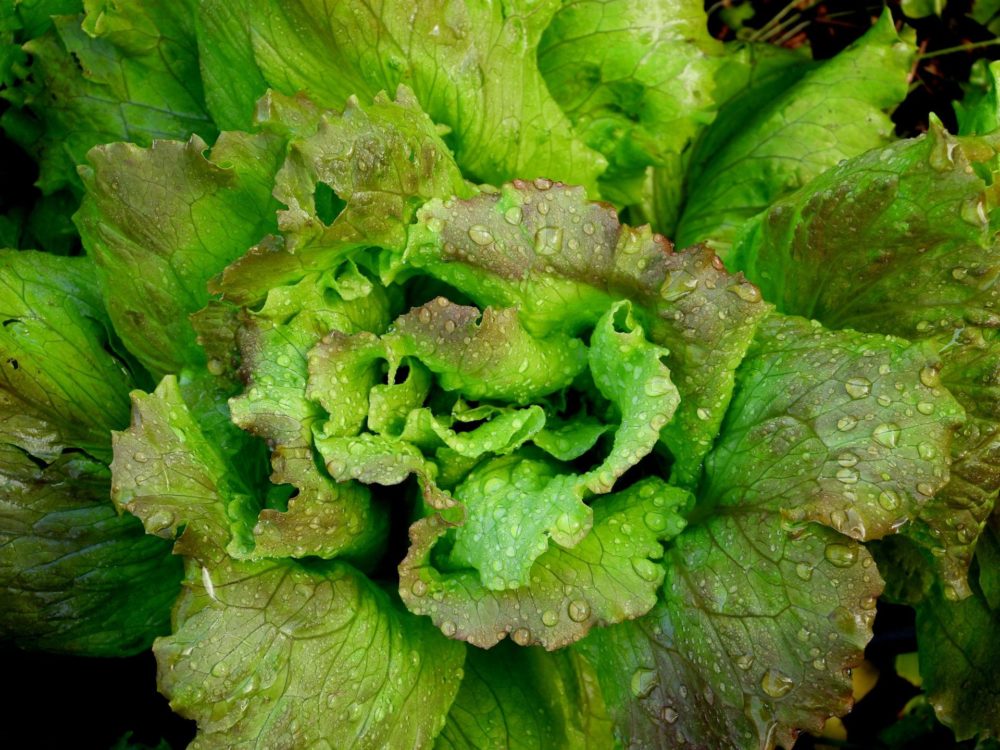Bowery has closed a $300 million Series C round, marking what it claims is “the largest private fundraise to date for an indoor farming company.” New investor Fidelity Management & Research led the round. Amplo and Gaingels also came on board as new backers.
Existing investors GV, General Catalyst, GGV Capital, Temasek, and Groupe Artémis re-upped in the round.
A few celebrities also took the opportunity to add vertical farming to their portfolios. including Formula One driver Lewis Hamilton, basketball player Chris Paul, actor Natalie Portman, singer-songwriter Justin Timberlake, and chef and hunger advocate José Andrés.
Bowery has now raised $472 million in total funding and claims a valuation of $2.3 billion.
“It’s a really exciting milestone for the whole company and everybody is really thrilled,” founder and CEO Irving Fain tells AFN.
“Not just because it recognizes the work that we’ve done, but I take it equally for the work that’s still ahead and the belief of some really great partners in terms of what we’re going to accomplish in this segment.”
This landmark moment for Bowery offers Fain an opportunity to reflect on how far the New York-based startup has come since launching in 2015 – and where the broader indoor farming segment may be headed.
Bowery’s sales and growth data paint an impressive picture, perhaps helping to explain the sizeable Series C raise. It claims to maintain category leadership in over 850 stores where its packaged leafy greens and herbs are sold. It also boasts a 750% boost in retail growth since January 2020 while adding Albertsons supermarkets to its list of retailers.
E-commerce sales have jumped 400%, too.
“I think it’s becoming very clear that the demand for what we’re doing at Bowery is strong and the technology and the progress that we’ve made is really evidence [of that] to the team and the broader community. I think we felt like starting to expand more, quickly, made a lot of sense,” Fain says.
The startup is currently expanding its Bethlehem, Pennsylvania site into what it claims is its “most high-tech and sustainable” farm yet. It also has plans to break ground on additional large-scale commercial farms during 2021.
Bowery is eager to join their ranks of other well-funded startups like Plenty and Oishii, which are pushing the boundaries of vertical farming to add fruiting crops like strawberries.
Fain says that the company has been actively pursuing R&D around adding different crop varieties to its lineup, and that the Series C will go a long way towards boosting those efforts. There is no set timeline at the moment for when new Bowery crops may hit the market, however.
“We have a world-class research and development team on the agricultural sciences side. We have grown hundreds of varieties of crops, certainly other varieties of leafy greens and herbs – but we are [now] growing fruiting crops like tomatoes, cucumbers, peppers, root vegetables, and tubers,” Fain explains.
“Part of what we’ll use this funding for is to continue to expand on the innovation side and commercialize a broader variety of crops in new categories as well.”
Indoor farming has seen meteoric growth recently, with investors flocking to the segment.
AppHarvest went public in a SPAC deal valuing the Kentucky-based startup at over $1 billion while AeroFarms also opted for a SPAC merger that valued it at $1.2 billion. Infarm recently raised $270 million in a Series C to expand into chilis, mushrooms, and tomatoes, while Revol Greens raised $68 million to build the world’s largest indoor farm.
But how big is consumers’ appetite for leafy greens?
“No market is truly infinite. But when you look at the aggregate market we are targeting at Bowery and you think of crops that make good candidates for what we’re growing, it’s a $100 billion market just in the US and a $1 trillion annual market globally,” Fain says.
“The second piece is that the share of indoor-grown produce compared to outdoor-grown produce is still really small. The opportunity to look at the share that doesn’t buy outdoor agriculture and provide a more sustainable, higher-quality, and flavorful product – that’s the opportunity that we’ve seen investors get really excited about.”
Even assuming that consumers are hungry enough to purchase as much leafy greens as the industry can supply, indoor farming is still a long way off from competing with field-based agriculture. Vertical farming currently accounts for the equivalent of just 30 hectares of outdoor farming.
Without offering a guess as to when indoor farming may catch up in terms of volume, Fain is optimistic about the potential.
“We’re really just getting started when it comes to what’s possible at Bowery and with indoor in general,” he says.
“That’s one of the things that really drove Fidelity’s belief in what we’re building, but also the substantial re-investment from our major investors. The recognition of the technology we’re building and the progress that we’re making, as well as commercially. The share of the overall market is still really small and there’s an enormous amount of growth room just in the categories that we’re in today.”
Hear more from Fain in his Future Food podcast conversation with AFN chief editor Louisa Burwood-Taylor below or on your favorite podcasting app





